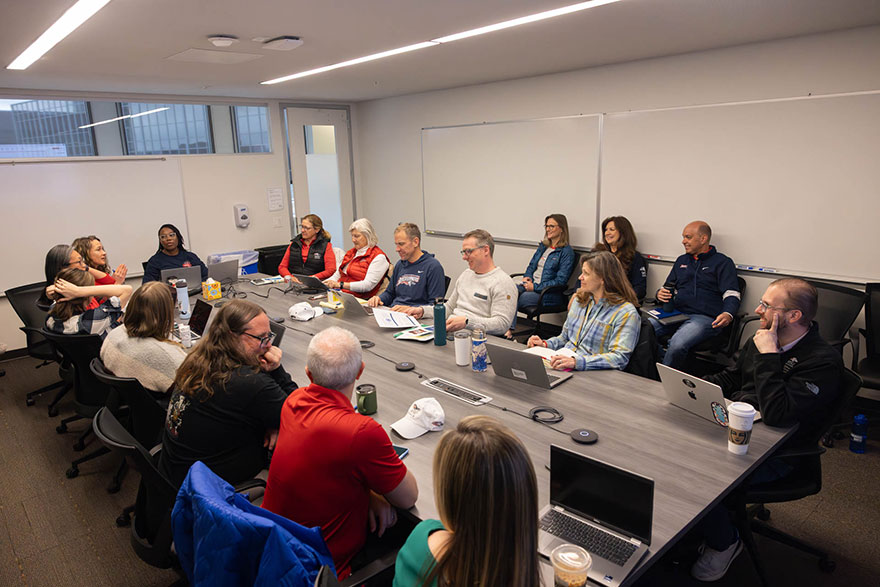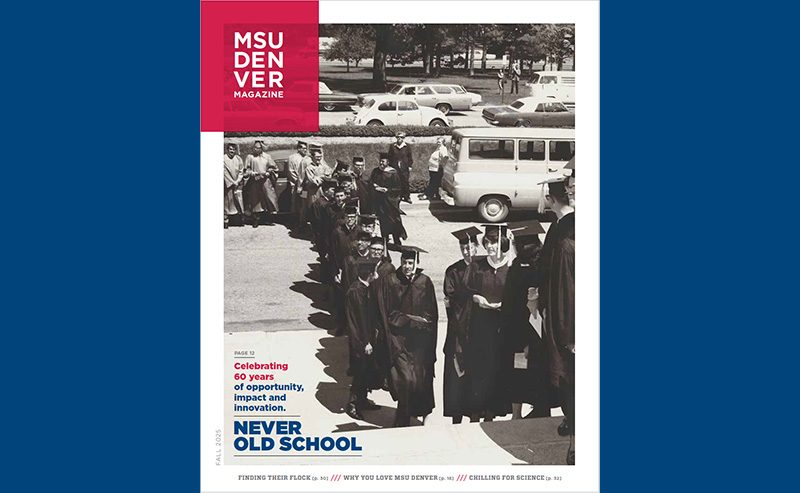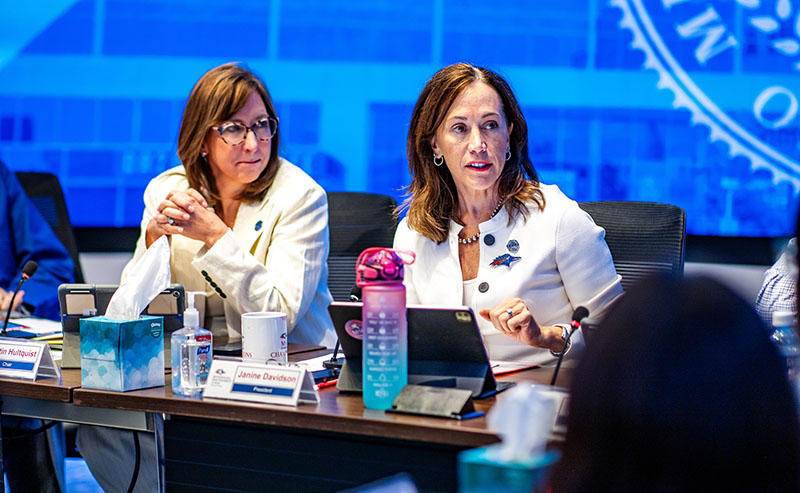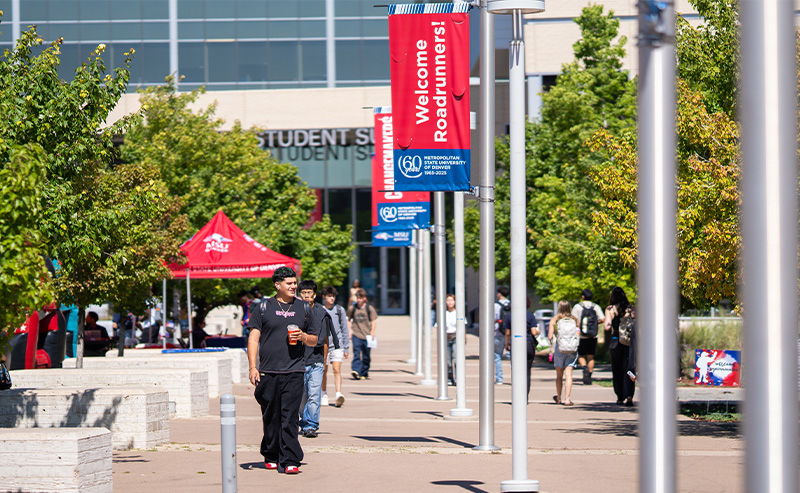Faculty and staff members at Metropolitan State University of Denver would see a 2.5% pay increase in the coming fiscal year under a budget recommendation that reflects a Universitywide commitment to investing in its people.
The proposed $233 million fiscal 2026 budget — submitted by the University Planning and Budget Advisory Committee, or UPBAC — was crafted in alignment with President Janine Davidson’s annual budget charge. The charge directs budget planners to prioritize spending that focuses on supporting employees, student success, organizational efficiency, financial sustainability and expanded recruiting pipelines.
UPBAC, which comprises representatives from each University branch, plays an advisory role in budget development and is charged with recommending a balanced budget to Davidson, who considers the committee’s work as she develops a proposal to submit to the MSU Denver Board of Trustees.
The board is expected to vote on next year’s budget during its regularly scheduled meeting June 13.
“In a year marked by financial uncertainty at the state level, UPBAC’s recommendation ensures that MSU Denver can continue investing in people while making strategic investments that support our students and the University’s financial sustainability,” said Andrew Rauch, budget director and UPBAC facilitator.
Committee prioritizes pay increase
The 2.5% raise would apply across the board to faculty and administrative staff beginning July 1. The increase would also apply to part-time administrative-staff members and tenured/tenure-track faculty members who work less than 40 hours per week.
Classified employees will see a 2.5% pay increase, as required by the state. Affiliate-faculty pay is not eligible for the across-the-board increase but would be adjusted separately within the Academic Affairs pay scale. Student employees aren’t eligible for the pay increase, as their compensation is adjusted per city and state minimum-wage laws.
In crafting its recommendation, UPBAC projected revenue based on assumptions of flat enrollment and a tuition increase of 3.5%, which is similar to increases at other state four-year institutions.
Universitywide collaboration closes budget gap, safeguards student success
Building this year’s budget required discipline and creativity. Preliminary projections showed that MSU Denver could face a $5 million shortfall without changes to tuition or additional state funding.
While the Colorado General Assembly ultimately trimmed that shortfall, providing $3.3 million in new support, it was still far short of last year’s $9 million allocation, and concerns about the fiscal 2027 state budget loom large.
MSU Denver responded to the fiscal 2026 shortfall by identifying $3.9 million in savings across all branches — roughly 1.7% of the total budget. Efforts such as shifting costs to alternative revenue sources, consolidating or eliminating vacant positions and reducing contract spending fueled the savings.
Each branch contributed, with savings ranging from 0.6% to 2.9% of their total budgets.
“Every branch across the University stepped up to the plate to strategically identify efficiencies,” said Jim Carpenter, chief financial officer and vice president for Administration and Finance. “This was a Universitywide effort grounded in collaboration, transparency and a shared commitment to advancing our mission. The savings we identified together not only helped balance the budget but ensured we can continue investing in our people and serving students with excellence.”
Targeted investments in student success
Along with the savings, the UPBAC recommendation calls for nearly $800,000 in strategic investments aimed at enhancing student support, the University’s cybersecurity and University visibility.
Recommended new investments:
- $175,000 to expand student employment in the Writing Center and Student Academic Services.
- $126,000 for information-technology enhancements, including cybersecurity upgrades.
- $175,000 to sustain marketing efforts that expand recruitment pipelines and brand awareness.
- $175,000 to continue two key fundraising positions in University Advancement.
- $100,000 in new scholarship support for student-athletes.
- $27,500 to adjust salaries in the Office of Diversity and Inclusion to better reflect market rates.
Preparing for enrollment shifts and long-term stability
This year, the committee met 11 times and evaluated four rounds of budget-balancing exercises, including presentations from senior leaders across campus. The process prioritized full-picture budgeting rather than one-time funding requests and leaned heavily on data analysis, particularly around enrollment and revenue projections.
While the current recommendation assumes flat enrollment, the committee developed contingency plans — or “waterfall” strategies — should enrollment rise or fall. A 1% swing in enrollment equates to roughly $1.1 million in revenue.
Should enrollment exceed expectations, priorities include further compensation adjustments, strengthening University reserves and restoring reduced branch funding, including a request to fund an Enterprise Risk Management position. If enrollment dips, the committee recommends revisiting new branch investments and identifying additional savings.








